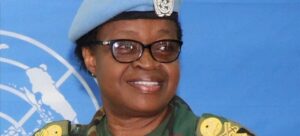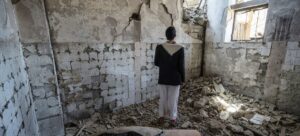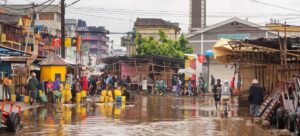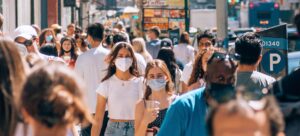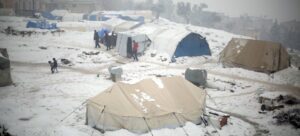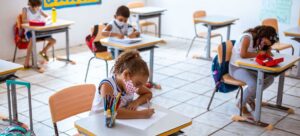Pauline Vaiangina, her husband, and their four young children, who live in Tongatapu, Tonga’s main island, were visiting their grandmother on the tiny remote island, when Hunga Tonga Hunga Ha’apai erupted.
Sudden explosions
“It was a Saturday like any other”, says Pauline. We had just finished eating fish for dinner and I was washing the plates, when the dogs barked non-stop as if trying to warn us of something … they were persistent.”
Suddenly they heard explosions from the volcano that were so loud and so intense that they could be heard and felt over 800 kilometres away in Fiji.
After the second, louder explosion boomed, Pauline noticed an unfamiliar change in the movement of the tide. “It went out and came back in. Each time the tide went out, the beach was left drier and drier, and the sea level rose higher.
‘Run to the mountain!’
That’s when I yelled, ‘Run to the mountain!’ We shouted to all the neighbours to flee to high ground – the waves and the volcano were so loud.”
As Pauline had guessed, a tsunami was about to hit Mango Island. Like the volcano, the effects of the tsunami spread well beyond Tonga, with impacts felt as far away as Peru, and California in the United States.
Pauline’s husband carried all four of their children up the mountain, returning to carry her 80-year-old grandmother as well.
As they sat under a coconut tree, watching ash and rock fall from the sky, and huge waves crash over the island, practically every structure was destroyed, leaving the inhabitants homeless.
Singing hymns.
Sheltered only by small tarpaulins and mats, everyone who followed Pauline and her family up the mountain huddled together through the night and sang hymns as the volcano roared; lightning lit up the sky.
“We didn’t leave the mountain until Monday morning”, recounted Pauline. “We came down to an island that was completely wiped out. We bathed in the sea, looked for any remaining clothes. At this point, we are just grateful to be alive.”
‘Entire population of Tonga impacted’
- The Government of Tonga and humanitarian partners reported on Wednesday that the entire population of Tonga (approximately 105,000 people) have been impacted by the ash and the tsunami.
- At least 62 people originally from Mango Island were initially evacuated to Nomuka Island and, on 21 January, to Tongatapu. The low fatality numbers are being attributed to a well-functioning early warning system and successful preparedness activities.
- At the height of the crisis, some 3,000 people had to seek shelter on higher grounds, either with relatives and friends or in evacuation centres, but the vast majority have been able to return home.
- The Government of Tonga and humanitarian partners (the Tongan Red Cross Societies, INGOs, donors and UN agencies) are carrying out initial damage assessments and providing urgently needed humanitarian assistance to people in need.
- 26 UN staff on the ground continue to support the Tongan Government’s recovery efforts in-country, and UN teams across the Pacific region have mobilized immediate relief supplies, including, crucially, access to clean water, access to communication (internet and international phone lines, satellite phones), WASH (Water, Sanitation and Hygiene) kits, and shelter.


